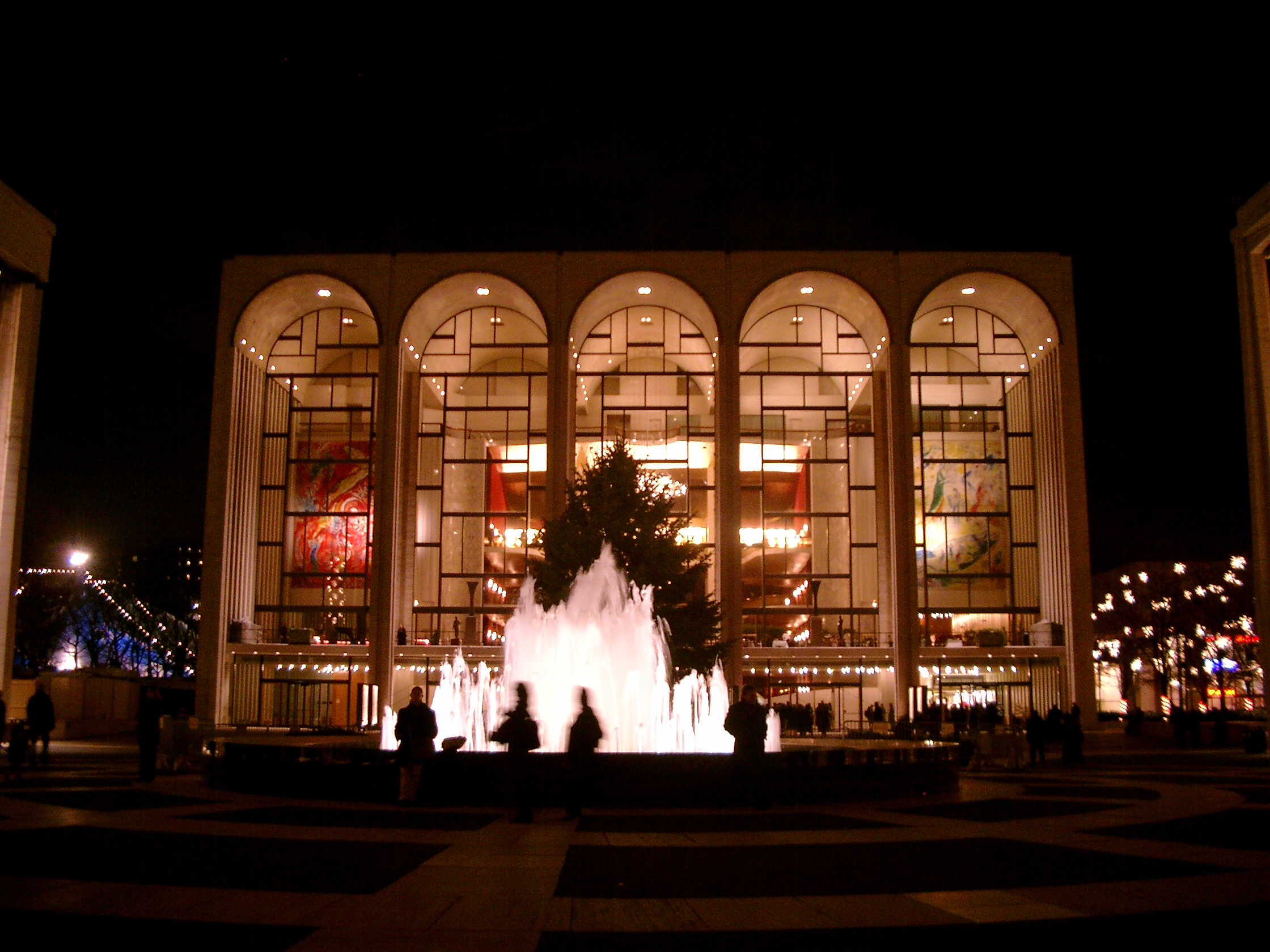Entertainment
Met Opera starts regular Sunday matinees, breaking tradition

The Metropolitan Opera began regular Sunday-afternoon staged performances for the first time in its 136-year history with Puccini’s “Turandot,” an effort to boost ticket sales and revenue. (File Photo By Lechhansl – Eigene Aufnahme, Januar 2004 Lechhansl 14:21, 20. Jan. 2007 (CET), CC BY-SA 3.0)
NEW YORK — Some in the audience wore tuxedos and evening gowns, others wore jeans and sneakers. There was even a man wearing a black sleeveless shirt and blue suede cowboy boots.
The Metropolitan Opera began regular Sunday-afternoon staged performances for the first time in its 136-year history with Puccini’s “Turandot,” an effort to boost ticket sales and revenue.
“I love it. Outstanding,” said E.G. Fisher, a 51-year-old New Yorker who was attending the performance with his 15-year-old daughter, Bella, a high school junior. “We get to watch the whole opera and don’t have to go home early and do homework.”
As part of three-year labour contracts agreed to in the summer of 2018, the Met has the right to present up to 17 Sunday matinees this season and 27 in 2020-21. Any Sunday show will be followed by a Monday off for both performances and orchestra rehearsals. And Tuesday-morning rehearsals will have limits.
“On a weekend people can relax and devote three or four hours that an opera takes,” Met general manager Peter Gelb said. “This is not confined to the Met. Sunday matinees on Broadway have been hugely successful.”
Last season saw 75 per cent of tickets sold and 69 per cent of box office revenue capacity realized factoring in discounts, down from 90 per cent in the 1990s. The Met said 78 per cent of Sunday’s tickets were sold to paying customers and next Sunday’s performance of the Gershwins’ “Porgy and Bess” is sold out.
The Met has long presented seven performances a week from fall through spring: evenings from Monday through Saturday, plus a Saturday matinee. The Saturday afternoon shows have been featured since 1931 on radio, a series that runs from December through the end of the season. High-definition video simulcasts to theatres started in 2006-07 and now transmit about 10 matinees per season.
There were Grand Sunday Night Concerts from 1883-1944 plus the occasional Sunday-night staged gala, including the premieres of Herbert Graf’s production of Verdi’s “Otello” with Georg Solti conducting in 1963 and of Marc Chagall’s designs of Mozart’s “Die Zauberfloete (The Magic Flute)” in 1967.
But moving forward, there will be regular Sunday afternoons and fewer Monday evenings — traditionally the dressiest night of the week at the Met, with a marked increase of men in white tie and tailcoats.
“This will be a massive shift in lifestyle for all of us,” said Brad Gemeinhardt, a third horn and representative of the Met’s orchestra committee. “For those of us with families and children in school, we now have committed another weekend day to the Met, which means we no longer have a full day to spend with our families.”
As part of the labour contract, orchestra members receive an additional personal day that, with the permission of the orchestra manager, can be used to be let off from a weekend performance. Because there are more Mondays off, the Met has had to alter its schedule of final dress rehearsals, which usually take place three or four days before the first performance of a run.
“That complicates the puzzle a little bit,” Met assistant general manager for performance John Sellars said. “When you’re doing grand opera repertory, you’ve got multiple operas in performance and have multiple operas in rehearsal all simultaneously, and you have to consider how many days rest in between performances singers need.”
The audience gave a huge, louder-than-usual ovation to music director Yannick Nezet-Seguin and the cast highlighted by Christine Goerke (Turandot), Yusif Eyvazov (Calaf), Eleonora Buratto (Liu) and James Morris (Timur). The performance was dedicated to Franco Zeffirelli, who created the production in 1987 and died in June, and longtime Met tenor Marcello Giordani, who died of a heart attack on Saturday at age 56.
Molly Livingston, a 17-year-old aspiring singer from Knoxville, Tennessee, and her 54-year-old father Mark, who commutes regularly from Tennessee to New York for work, were attending their first Met performance.
“It’s awesome,” she said.
Her dad is reluctant to attend shows at night when he has work the next morning.
“It’s actually kind of nice to come in the middle of the day,” he said. “We had lunch before. Maybe we’ll have dinner afterwards.”





















